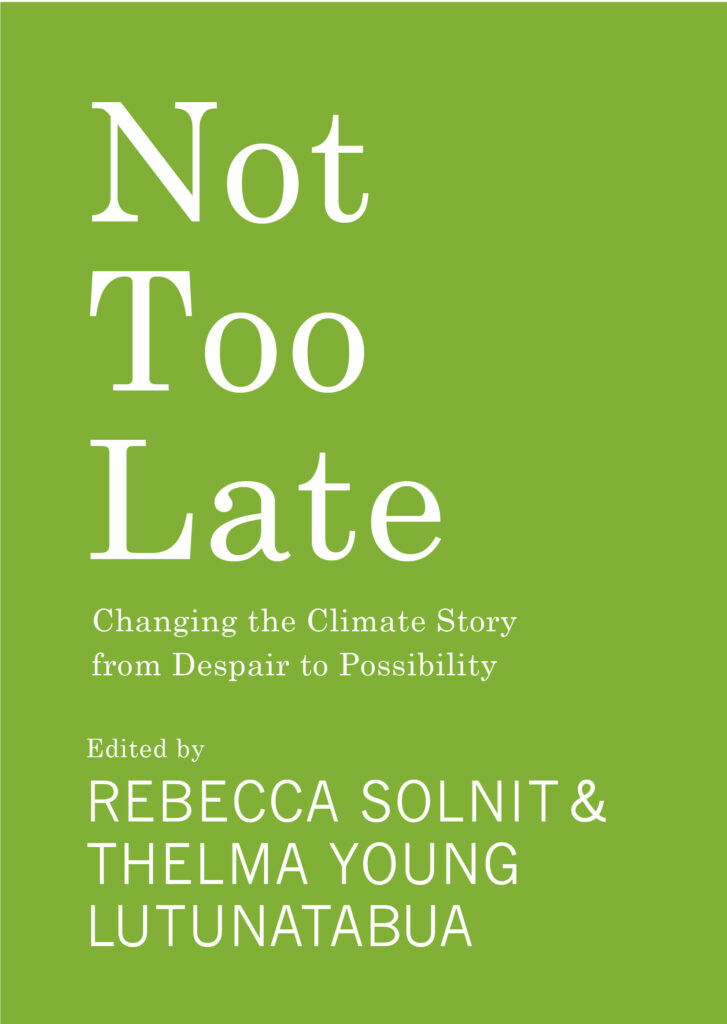
Edited by Rebecca Solnit and Thelma Young Lutunatabua
Haymarket Books, 2023
220 pages, paperback, $16.95
I have often wondered if the stories we tell ourselves shape the world we live in, or if the world — in all its complexities — shapes our stories. It’s likely a bit of both, but “Not Too Late,” a collection of essays by climate scientists, Indigenous activists, and community organizers, edited by Rebecca Solnit and Thelma Young Lutunatabua, makes a compelling case for understanding the climate crisis as a storytelling crisis.
Is our love affair with dystopian movies, books, and games — and of a future mired in war and wracked by climate disasters — limiting our imagination for what is possible in the future? I think Solnit and Lutunatabua would argue that it is. That we need to flip the climate crisis narrative from one of inevitable chaos and scarcity to one of possibility and abundance, shifting what “a good life” means. In the essay, “Different Ways of Measuring,” Solnit and Lutunatabua ask, “If we strengthen communities and ecosystems, what can abundance bring?” A quote they include by Elizabeth Swain summarizes their assertion: “It is some very effective marketing that has convinced so many of us that getting off of fossil fuels is a sacrifice as opposed to a money-saving, peace-promoting, water-protecting, health-improving, technological leap forward.”
While “Not Too Late” offers detailed and viable solutions to the climate crisis, it does not shy away from outlining the difficult realities, driving home the need to act now. Edward R. Carr reminds us in the essay, “We are not Doomed to Climate Chaos,” that we already have the technology needed to address the climate crisis, which can also lead to sustainable development. Many of the existing solutions are embedded in Indigenous cultures around the world. In “How the Ants Moved the Elephants in Paris,” Renato Redentor Constantino shows how centering Indigenous knowledge is critical to developing win-win-win solutions that benefit people, the planet, and the economy.
While many solutions are political, technological, and economic, this small book also provides psychological suggestions for working through the overwhelm and despair often associated with the climate crisis that can lead to apathy. Essays by Yotam Marom, Roshi Joan Halifax, and Kathy Jeñtil-Kijiner address despair head on, calling us to face fear and recognize that movements that believe in solutions are more powerful than those that don’t. We are reminded that we are not alone in facing this threat, and that while the enormity of the crisis may feel like an insurmountable mountain to climb, “difficult is not the same thing as impossible.”
– Jennifer Wilhelm, Madbury, New Hampshire
This review was originally published in the fall 2024 issue of The Maine Organic Farmer & Gardener. Browse the archives for free content on organic agriculture and sustainable living practices.
